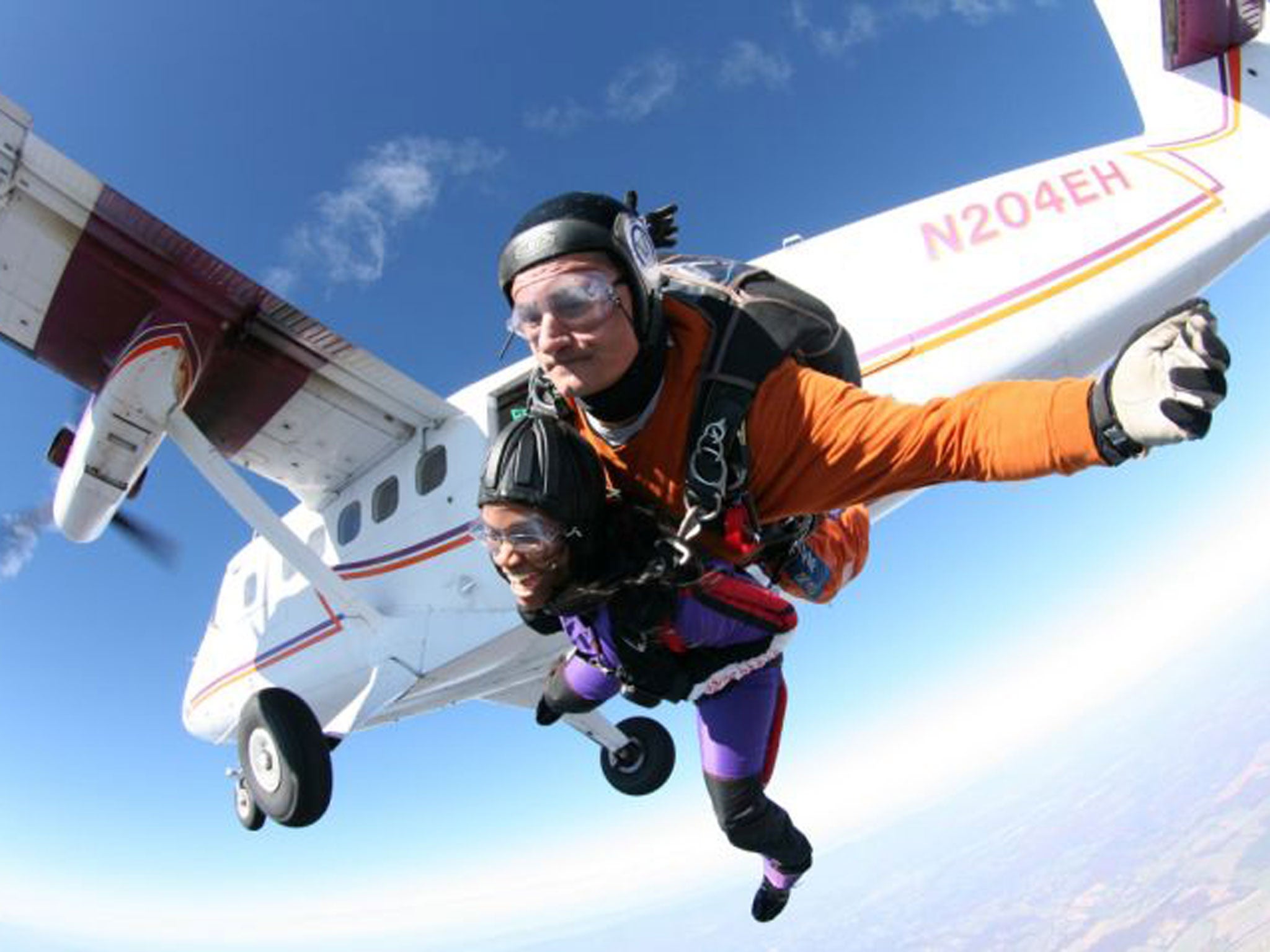Residents ask charity skydivers to switch to something less noisy
Protest groups form to fight noise nuisance caused by parachute jump aircraft

Your support helps us to tell the story
From reproductive rights to climate change to Big Tech, The Independent is on the ground when the story is developing. Whether it's investigating the financials of Elon Musk's pro-Trump PAC or producing our latest documentary, 'The A Word', which shines a light on the American women fighting for reproductive rights, we know how important it is to parse out the facts from the messaging.
At such a critical moment in US history, we need reporters on the ground. Your donation allows us to keep sending journalists to speak to both sides of the story.
The Independent is trusted by Americans across the entire political spectrum. And unlike many other quality news outlets, we choose not to lock Americans out of our reporting and analysis with paywalls. We believe quality journalism should be available to everyone, paid for by those who can afford it.
Your support makes all the difference.The growing popularity of skydiving as a leisure activity has given rise to new protest movement – among residents enraged by the sound of circling planes.
Anger is building across the UK at so-called “nuisance sky-diving” – in particular the noise made by circling aircraft as they prepare to release their adrenalin-junkie passengers.
The number of people skydiving at the UK’s 26 specialist clubs is higher than ever, according to the British Parachute Association, rising from 188,000 in 1998 to 250,000 in 2012.
An estimated half of all skydivers throw themselves out of planes in the name of charity, but noise campaigners are now asking them to find less noisy ways of raising money for good causes. Resident groups in Wiltshire, Gloucestershire, Oxfordshire and Cumbria are among those campaigning about the noise caused by skydiving.
Members of the Residents Against Redlands campaign claim that skydivers taking off from the Redlands Airfield in Wanborough, East Swindon, generate more than 12 hours of noise disturbance every Friday, Saturday and Sunday.
Kay Lacey, who moved to the area before skydiving from light aircraft began in 2000, said: “They are breaking maximum UK noise levels. Eighty decibels is at the top end of what’s considered loud enough to cause distress, but the skydiving planes reach 100. It’s a hellish droning sound which causes vibrations inside houses as well. When the Civil Aviation Authority grants licences they don’t test aircraft noise at full throttle, which is what planes fly at.”
The residents have collected almost 1,000 signatures on a petition calling for the noisiest plane model – the Gippsland G8 – to be grounded, but the airfield has so far declined to act.
Ms Lacey added: “The Gippsland G8 is the noisiest light aircraft in the UK. The skydivers were told by the council to vary the route to spread the noise nuisance, so now they fly over areas of natural beauty where they would never be allowed to build an airfield.”
Sarah Smith, a co-founder of Redlands Airfield, said: “We understand there are a group of people who object to the flying activities at Redlands, and these people have been campaigning for some years to close Redlands Airfield. However, we also enjoy tremendous local support and many people enjoy watching the aircraft and the skydiving. Our airfield is an integral part of our organic farm and we are sensitive to the needs and expectations of local residents.”
Protest groups are also trying to stop skydiving from the Duke of Gloucester Barracks in South Cerney, Gloucestershire; Cark Airfield in Cumbria and Lewknor in Oxfordshire.
Richard Buxton, a lawyer specialising in environment issues, said the protesters were more than just Nimbies. He told The Independent: “There are human rights considerations here. It’s problematic because the planes have to noisily spiral up and up and up at full throttle to reach the required height for the jumps. Skydiving aircraft aren’t considered ‘normal’ flights so they may not be exempt from legal recourse. It’s an interesting new legal area.”
Subscribe to Independent Premium to bookmark this article
Want to bookmark your favourite articles and stories to read or reference later? Start your Independent Premium subscription today.
Join our commenting forum
Join thought-provoking conversations, follow other Independent readers and see their replies
Comments